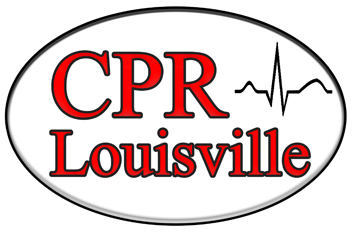I always used to think of anxiety as something that is pretty common among individuals. Whether it was test anxiety or feeling worried, nervous or anxious about something, this happens to almost everyone at one point in his or her life. I didn’t know however that this is an actual disorder until I saw it happen to one of my best friends. She would constantly be overwhelmed and extremely stressed out about her bills and her family that she could barely sleep at night. She also mentioned to me before that anxiety runs in her family. I witnessed her having her first panic attack while we were driving to the park. She was hyperventilating and told me that she couldn’t drive her vehicle any longer because she thought she was having a heart attack. I immediately told her to pull over and took her to the nearest urgent care. This situation really freaked me out and made me want to research about this topic and find out more information about it.
I discovered that anxiety is a mental illness and that once diagnosed with it, it can have a great effect on ones life. There are several types of anxiety disorders. Some of them include panic disorder, OCD, PTSD, social anxiety disorder, specific phobias and generalized anxiety disorder. My friend was diagnosed with the panic disorder and her life hasn’t been the same ever since. She is constantly fearful of having another panic attack. Since her first time was in the car, she was really scared to drive for a while after this has occurred. She also has to remember to take her medicine daily and visit her psychiatrist in order to maintain her daily routines. So what causes these anxiety disorders? Experts haven’t yet found the actual cause of an anxiety disorder but they think that genetics, stress and changes in the way your brain functions play a big role in it. You have a much higher chance of getting the anxiety disorder if you are a female, if you experienced traumatic events in your life, if your constantly stressed out about something, if your abusing drugs or alcohol or if it runs in your family.
Symptoms of this disorder vary with each case, but the most common ones include increased heart rate, panic, nervousness, hyperventilation and sweating. If you experience any one of these symptoms and think that you might have an anxiety disorder, it is best to get it checked out by a doctor sooner than later. If left untreated, these disorders can worsen over time and eventually lead to other mental or physical health problems. Several of those problems consist of depression, headaches, thoughts of suicide, trouble sleeping and substance abuse. Once diagnosed with an anxiety disorder by your doctor you will be ready to start the treatment process to help reduce your symptoms. The two main treatments for anxiety disorders include psychotherapy and medications. Psychotherapy consists of working with a therapist. Their job is to help you decrease your anxiety symptoms and to help you continue living an ordinary life. Some of the medications that people take to treat anxiety disorders include antidepressants, buspirone, and benzodiazepines. As much as Benzodiazepines can be helpful in treating an anxiety disorder, they can also have a negative influence on an individual as well. Some people taking Benzodiazepines become real addicted to them and develop a dependence on them throughout their life. This is especially true for people who have had previous issues with alcohol or substance abuse. So you might want to think twice about taking those if you had drug problems in the past.
Although psychotherapy and medications are most helpful when treating an anxiety disorder, there are also some lifestyle and home remedies that can be beneficial as well. Some of them consist of staying physically active, avoiding heavy alcohol consumption and other narcotics, and also decreasing caffeine and tobacco intake. Using relaxation methods, getting a sufficient amount of sleep and maintaining a healthy diet are yet another examples. I know that this might not work for certain individuals but it never hurts to try. The best ways to manage your anxiety disorder are to know a lot about the disorder, sticking to your treatment plan, taking action to help this problem, involving your family for comfort and joining anxiety support groups to talk about your disorder with people that are going through the same thing as you. After all, they understand a lot better than someone who has never gone through this before.
As you can see, there is a lot more to anxiety than just nervousness and worry. This disorder can have a big impact on ones life and requires professional and drug treatment that might go on for quite some time depending on the severity the case. But as long as you go along with the treatment and eliminate all the negativity and stress in your life, you can still succeed in living a normal life.
References:





